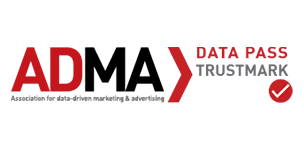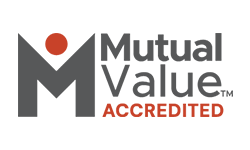G&C Mutual Bank is urging flood-impacted residents of New South Wales to watch out for scammers posing as government employees, insurers, or representatives from charity groups.
Leanne Vale, Director of Services and Financial Crimes for the Customer Owned Banking Association (COBA), says the rapid pace and trauma of natural disasters can work to the advantage of scammers who are exceptionally skilled at impersonating organisations and manipulating emotions.
“Crisis and rebate scammers deploy various tactics to take advantage of people in a time of uncertainty. Hearing about bushfires, floods, cyclones or earthquakes can motivate us to give, but for scammers it’s an opportunity to take,” says Mrs Vale.
Scammers will be closely monitoring this natural disaster to target payments, including those essential to recovery such as funds for temporary accommodation, replacing essential items, or rebuilding homes. Scammers will even pose as insurance policy holders to intercept cash payments through fraudulent emails and SMS.
An example of scammers’ devious tactics
In the wake of last year’s bushfires, a sham SMS declared: “Centrelink has processed your Australian Government Disaster Recovery Payment. Payment will be made to your account within 48 hours”. This was followed by fraudulent texts and phone calls that suggested government payments had been made in error with instructions and demands to return the money. People were also asked for secure personal details such as their bank account numbers.
In the space of minutes, bank accounts were emptied of funds and identities were stolen, paving the way for even more crimes.
“It’s important to remember that government departments will never randomly phone or send text messages to initiate a benefit claim,” says Mrs Vale.
“Cutting and pasting government department icons, brand logos and imitating email and SMS are all tactics from the scammer’s playbook.”
The amount lost to rebate scams is also on the rise. In December 2020, ACCC’s Scamwatch recorded a 300 percent increase from the previous year.
Advice for those at risk
A former Australian Federal Police Officer, Mrs Vale is a leading expert on fraud and financial crimes. Her advice is as follows:
- Be wary of all approaches you did not initiate, especially if you are asked to send money online.
- Confirm the identity of the contact by calling the organisation directly. Do not feel pressured to respond to the contact if you’re not 100 percent sure.
- Do not disclose personal information in a phone call, such as sharing your bank account screen, reading out passwords, or providing login details to MyGov.
- Trusted organisations will not ask for an upfront payment to process recovery payments. Requests from Services Australia and government departments can be verified with a call to special hotlines made available on their websites.
- Consider your local post office. When internet services are disrupted, print and post with your post office is a trusted option.
- Only donate to legitimate registered official charities. Verify the charity through the Australian Charities and Not-for-profit Commissions website.
Need help?
If you believe someone has gained access to your personal information, even if the scam appears unrelated to your finances, you should contact your bank immediately. A timely response can be critical in giving you the best chance to stem any loss.
- If you have concerns about your G&C Mutual Bank account, contact us on 1300 364 400.
- If the scam occurred on social media or a legitimate website, report it to the platform involved. For scams on Facebook, Messenger, WhatsApp and Instagram, see this step-by-step guide for reporting scams on Facebook services.
- You can find out how scams work, how to protect yourself, what to do if you’ve been scammed or report a scam to the Australian Competition and Consumer Commission (ACCC) via the Scamwatch website.




